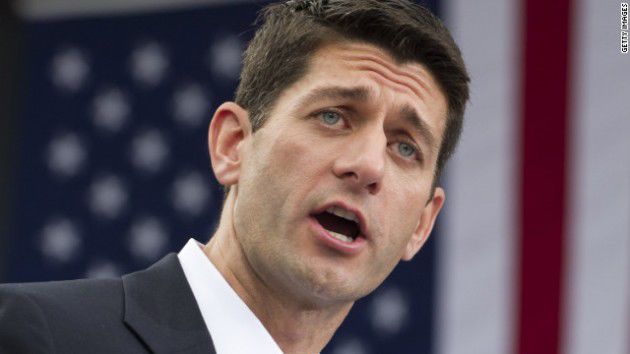Paul Ryan begins new era as Speaker
November 4, 2015
Taking the helm as the 54th Speaker of the House, Rep. Paul Ryan (R., Wis.) looks to lead Congress through a tumultuous chapter as he faces a litany of major challenges in the near future. The Former Speaker John Boehner (R., Ohio) resigned unusually in the middle of his term, which caused a panic in the Republican Party to find a replacement. When the sure front-runner, House Majority Leader Kevin McCarthy (R., Calif.) dropped out of contention, Republican leadership was in crisis mode figuring out its next move. After denying a flurry of requests to take the job, Ryan eventually agreed to run for the position, because many in the Party felt he was the only man capable of such a role in this crucial time.
In his first days as the new speaker, he addressed that immigration will not be a topic that will see any major changes in the near future, as this was an issue most conservatives were worried about. Some old school conservatives are worried that Paul Ryan is not conservative enough to lead the Party, but Ryan assured his skeptics by saying, “I was elected to unify the Republican conference, not to dis-unify the Republican conference.”
These concerns arise because Ryan has previously had an affinity to famous libertarian Ayn Rand. In 2009, he begged the question. “Do you want a collectivist welfare state or do you want to go back to being a free market?” and continued, “We need to make a moral, not just practical or statistical, case.” In the 2012 Presidential election, Ryan backed off his support of Rand, by saying “I reject her philosophy.”
Ryan understands his limitations as Speaker, despite having a commanding majority in the House, the Senate Republicans only control 54 votes, shy of the 60 votes necessary to pass legislation undeterred.
Ryan also understands that the Party itself is fragmented on decisive issues, making it necessary for him to hear opinions from all around the Party as well as across the aisle. Mr. Ryan told NBC, “I didn’t get elected dictator of the House. I got elected speaker of the House. And that means, in my opinion, facilitating consensus among Republicans about how to move forward.” This step forward from former Speaker Boehner’s more closed approach to policy decision making.
Perhaps more known to the average student as the Vice Presidential candidate to Mitt Romney in 2012, Mr. Ryan has gained a reputation for his stellar work in Congress and as a representative of the new generation of the conservative party.
Now he is being called upon again by his party to take control of the House and instill direction and leadership at a time where recently diminutive progress has been made.
Ryan is looking to forge a new path for the House, by first looking at the highway bill, which congress has not passed a six-year highway bill since 2005. While ambitious and a positive first step, the real test will come when the current funding for the infamous spending bill expires on Dec. 11. Issues like funding for Planned Parenthood, Affordable Care Act, Wall Street regulations, and environmental concerns are all issues that will be fiercely debated on. Ryan’s ability will be put to the ultimate test, as he tries to negotiate a fair deal and avoid a government shutdown.











